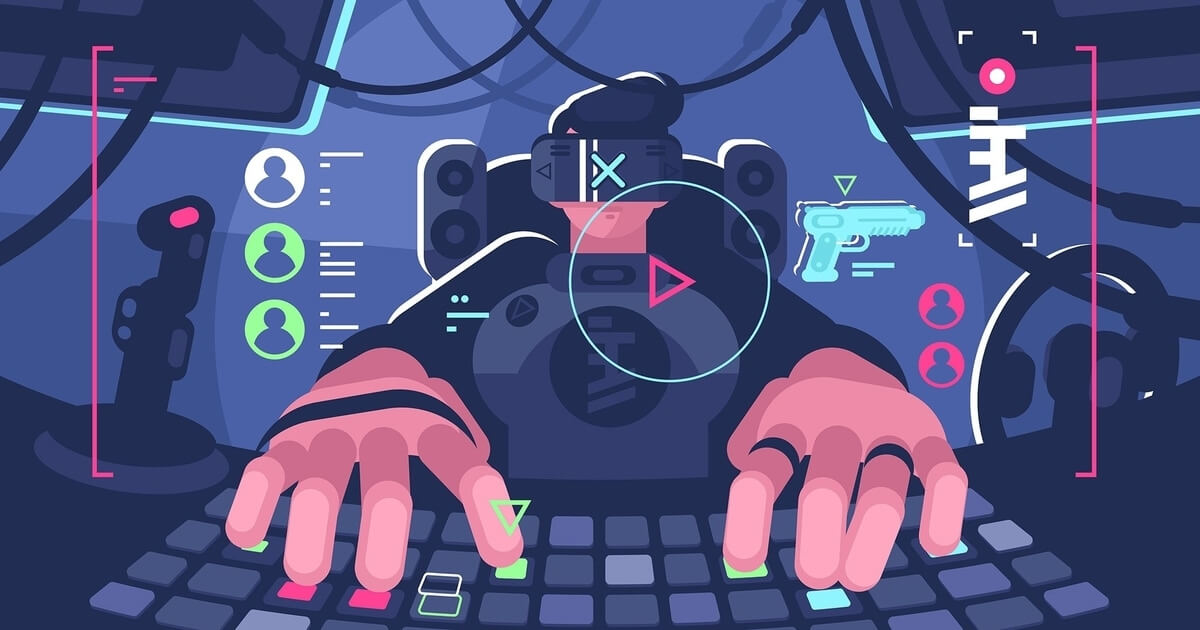The Rise of Massively Multiplayer Online Games Being Built on Blockchain
Fernando Sanchez Sep 16, 2019 07:00
Massively Multiplayer Online (MMO) games have existed for a long time, but these games currently suffer from the same inherent flaws as many other online assets: centralization. Blockchain technology is slowly emerging as a disruptive force in the market, resolving troublesome issues like in-game cheating, and restoring freedom for players around the globe.

The educational services industry should learn from the positive aspects of gaming - reward, accomplishment, and fun, according to Sebastian Thrun, a German educator, and entrepreneur. He's got a point. We all want our years spent in the education system to lead to a rewarding career in a job we enjoy, and the achievement of an overall sense of accomplishment in our lives.
These three concepts (reward, accomplishment, and fun) are key components of gaming.
There was a time, not so long ago, when gaming was as simple as batting a pixelated ball from one side of the screen to the other, or zooming around a maze while gobbling up Pac-Dots and trying to avoid being caught by sad-looking, brightly colored ghosts.
Pong and Pac-Man were big hits back in the early 80s, just as the dawn of the gaming era began to brighten a horizon where entertainment and technology merged into one massive business opportunity. Today's gaming environments are far removed from such humble beginnings. Technology has evolved, and so have the habits, demands, and expectations of gamers worldwide. A thriving community is a key to success. This is particularly true in the case of Massively Multiplayer Online (MMO) games.
The current state of play
MMO games are persistent, virtual (online) environments where hundreds or even thousands of players participate in quests, missions, engage in combat, form alliances, and interact with each other to progress and advance their rank. Well-developed in-game communities may grow into the thousands of players, on a global scale.
Despite the global nature of MMO environments, these games remain largely centralized and dependent on the developer's solvency and willingness to support the game for their existence. And developers, in turn, depend on people to keep playing the game to stay in business. A robust and strong in-game economic system is therefore vital.
MMO's economic infrastructures greatly resemble 'real-life' economies. Players buy, sell, or trade items such as weapons, rare ornaments, commodities, and so-on, via the game's proprietary token system or currency. Other games require real money to acquire new skins or cosmetic items to enhance your in-game presence and status. In either scenario, the developer (a centralized entity) regulates, oversees, and manages all the transactions. This centralization is inherently vulnerable to both outages and attacks. Distributed-Denial-of-Service (DDOS) attacks are a common occurrence. For example, Blizzard Entertainment -the creator of World of Warcraft, one of the most successful MMO games ever-, was the target of such an attack in recent days. In short, a game server that is not running is a game server that is not making money.
The solution to this quandary is not easy, but relatively new technology has emerged as a firm contender: Blockchain.
Decentralizing MMO worlds through blockchain
The success of a game becomes a problem in itself. The bigger the player pool, the harder it is to manage it. Larger communities require more servers, which in turn means more space, more bandwidth, more power, more people to manage the network, etc. In short, huge overheads. Scalability is an inherent issue of centralized gaming entities.
Blockchain technology provides a decentralized, Peer-to-Peer (P2P) gaming environment that offers security, transparency, and more importantly, is controlled by the players themselves.
The back-end of 'traditional' MMO games is usually controlled by the developer, or by game distribution platforms such as Steam, with all the issues previously discussed. But blockchain technology is quickly emerging as a solution to the quandary of centralization and scalability.
At its core, blockchain does exactly what it says on the tin. It is a chain of blocks that stores transactional data. All existing nodes in the network validate the transaction, which becomes immutable, i.e., it cannot be changed. The idea is simple, yet the implications are powerful.
Blockchain's immutability trait grants unique advantages to an MMO's economic system. There cannot be backtracking or tampering of records, for example, so the provenance and legitimacy of in-game items can be validated at a glance.
And the decentralized nature of blockchain also means that no central game servers that can be attacked or shut down at the developer's whim. Players simply connect with one another (rather than through a central server) and play. It really is that simple.
But perhaps one of the key benefits of deploying MMO environments on the blockchain is the complete elimination of in-game cheating. A lot of games are plagued by people bent on exploiting and subverting gameplay elements for their own advantage, and to the detriment of the honest players. Blockchain prevents cheating because technology enables a transparent and provably fair gaming environment.
Conclusion
MMOs are big. The industry was expected to grow from $24.4B in 2014 to nearly $31B by 2017, according to Statista. Game developers, both established and upcoming, want to have a slice of the money pie. Blockchain technology supports the development of MMOs and other game types, in many ways. As we have seen, blockchain greatly reduces overheads and provides a decentralized, clean, transparent, cheating-free gaming environment where players, rather than the developers, are in control.
Blockchain is all about restoring freedom. Freedom to play without being constrained by developers' whims and machinations, freedom to explore an environment without the constant fear of being obliterated by bad actors exploiting the game, and freedom to interact with other players in ways that centralized gaming environments cannot hope to achieve.
Image via Hacker Noon
.jpg)